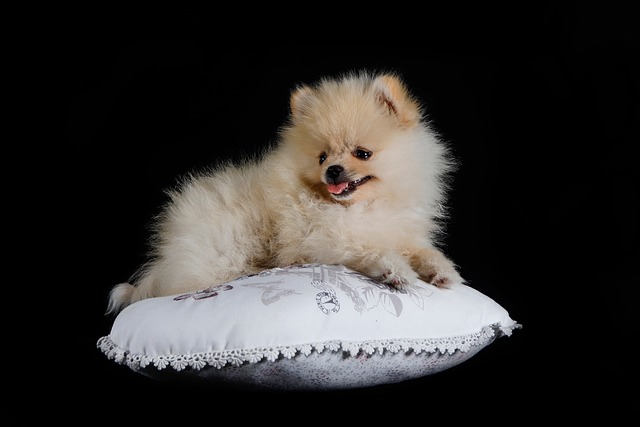
What is the best type of training for a dog?
There’s no one-size-fits-all answer to what makes the best dog training, but most experts agree that methods built on positive reinforcement tend to yield the most lasting results.
Ever brought home an adorable poodle puppy, only to find those sharp little teeth nipping at your hands during playtime? It's a common frustration for many new owners across the US, whether you're in a bustling city like Chicago or a quieter suburban neighborhood. Puppies bite instinctively as part of their teething phase or to explore their world—think of it like human babies mouthing objects. Triggers can include overstimulation, fear from unfamiliar noises, or even boredom when left alone too long. Recognizing these causes early helps prevent poodle biting tendencies from becoming ingrained habits, especially since ignoring them could lead to bigger issues down the road. Remember, in most states, aggressive behavior might escalate if not addressed, tying into broader animal welfare laws that require safe, non-threatening pets in public spaces.
So how do we reshape this behavior effectively? Behavioral psychology poodle training relies on positive reinforcement, a method backed by decades of research showing that rewarding good actions works better than punishing bad ones. When your poodle chooses not to bite, giving an immediate treat or praise reinforces that choice through dopamine release in their brain, making them more likely to repeat it. This approach aligns with strict cultural norms here—American vets and trainers widely condemn physical discipline like hitting or yelling, as it can increase fear-based biting and violates ethical standards. Instead, focus on building trust: for instance, if your dog mouths gently during play, redirect them to a chew toy and celebrate when they comply.
Now, let's dive into some counterintuitive poodle training techniques that might surprise you but deliver real results. Instead of scolding or pulling away when biting occurs, try freezing completely—no movement or sound—for a few seconds, then calmly walk away. This teaches your poodle that biting ends fun interactions, leveraging positive reinforcement by only resuming play when they're calm. Another method involves "time-outs" in a safe, quiet spot for 30 seconds to reset their energy. These tactics feel unnatural at first but tap into how dogs learn best: by associating calm behavior with rewards, not threats. In urban settings like New York apartments, this helps avoid noise complaints while fostering a peaceful home environment.
Putting this into practice starts with simple steps you can do at home today. First, gather essentials like high-value treats (e.g., small bits of chicken) and durable chew toys. Begin training during low-stress moments, such as after a walk: when your poodle mouths you, freeze immediately, then redirect to the toy and reward with praise when they bite it instead. Repeat this 5-10 times daily, gradually increasing distractions. Timing is key—respond within seconds to reinforce the connection. For apartment dwellers, keep sessions short to prevent pent-up energy from triggering bites, and always clean up any messes quickly to comply with local poop-scoop laws in shared areas.
Of course, setbacks happen—maybe your poodle regresses during a stressful vet visit or after a move. Don't get discouraged; consistency is your best ally. If biting flares up, revisit the freeze-and-redirect method, and ensure everyone in the household follows the same rules to avoid confusion. Use a journal to track progress, celebrating small wins like fewer nips over weeks. This ties into cultural sensitivities: never resort to harsh corrections, as it undermines trust and could violate animal cruelty regulations. Instead, seek support from local dog groups or apps like Rover for community advice.
For deeper insights, consult resources like the American Kennel Club's online guides on positive reinforcement for poodle biting, which offer free videos and expert forums. Many trainers recommend starting with puppy classes early to socialize your dog and prevent biting tendencies in public parks—always carry waste bags to meet cleanup duties. Remember, training a poodle not to bite takes patience, but with these science-backed tools, you'll build a happier, safer bond for years ahead.

There’s no one-size-fits-all answer to what makes the best dog training, but most experts agree that methods built on positive reinforcement tend to yield the most lasting results.

Welcoming an 8-week-old puppy into your home is a joy filled with wiggly tails and endless curiosity. One of the first steps in building a strong bond is teaching them their name.

If you’ve ever sat up at night, listening to your gray-muzzled dog pace back and forth, stopping to whine or stare at a wall, you know the worry that comes with a restless senior pup.

Training a service dog starts long before they’re ready to assist with specific tasks—their journey begins with building a foundation of trust, focus, and adaptability, and the timing of this training matters more than you might think.

Watching a tiny puppy fumble through their first attempts to sit can feel like watching a little acrobat mastering a new trick.

If you’ve ever found your flower bed dug up or your favorite shrub chewed to bits, you’ve probably searched for easy ways to keep neighborhood dogs (or even your own) out of your yard.